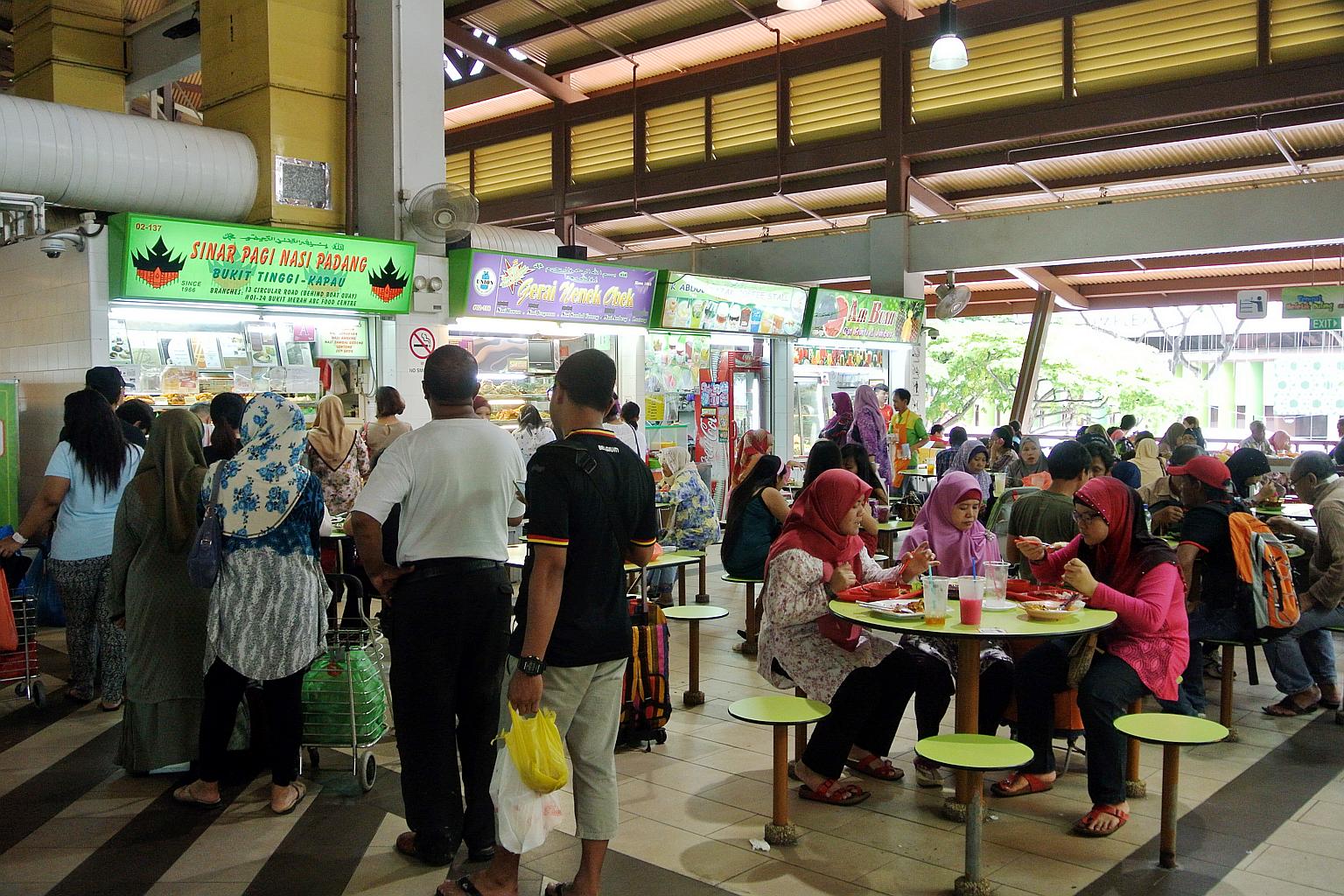Parliament: No styrofoam packaging ban, but hawkers discouraged from using it
Sign up now: Get ST's newsletters delivered to your inbox

People queuing to buy food while others are having their meals at the Geylang Serai Hawker Centre.
PHOTO: BERITA HARIAN / FILE
SINGAPORE - Hawkers here are discouraged from using disposable plates, bowls and utensils made of polystyrene foam, better known as styrofoam, which are non-biodegradable and environmentally unfriendly.
But the Government will not impose a ban on them in consideration of other factors, such as the cost of alternatives and inconvenience to hawkers and consumers, Senior Minister of State for the Environment and Water Resources Amy Khor said on Monday (May 9).
Other types of disposable ware, such as plastic containers and coated paper boxes, cost about two to three times more than the clamshell polystyrene foam packaging, she added.
Dr Khor noted that the use of reusable crockery is more cost-effective than using styrofoam packaging, even after taking into account the costs of manual collection and washing. However, there may be manpower constraints.
The Government is working to discourage hawkers, through the hawker associations, the use of disposable ware, Dr Khor said.
"We need to take into account the cost of alternative options, as well as manpower constraints for these hawkers and the inconvenience that may be caused. As much as possible, we'll encourage them not to use disposable ware, particularly for dining in," Dr Khor told Parliament.
She was responding to a question raised by Miss Cheng Li Hui (Tampines GRC), on whether the National Environment Agency (NEA) will consider imposing a ban on the use of styrofoam packaging in hawker centres in view of its detrimental effects on the environment.
A number of cities around the world, including Penang in Malaysia, New York, Minneapolis, San Francisco and Seattle in the United States, have implemented bans on polystyrene foam packaging.
Dr Khor said that while polystyrene foam packaging may be of concern in some countries where waste is landfilled, it is incinerated safely in Singapore at waste-to-energy incineration plants, which are fitted with pollution control equipment.


